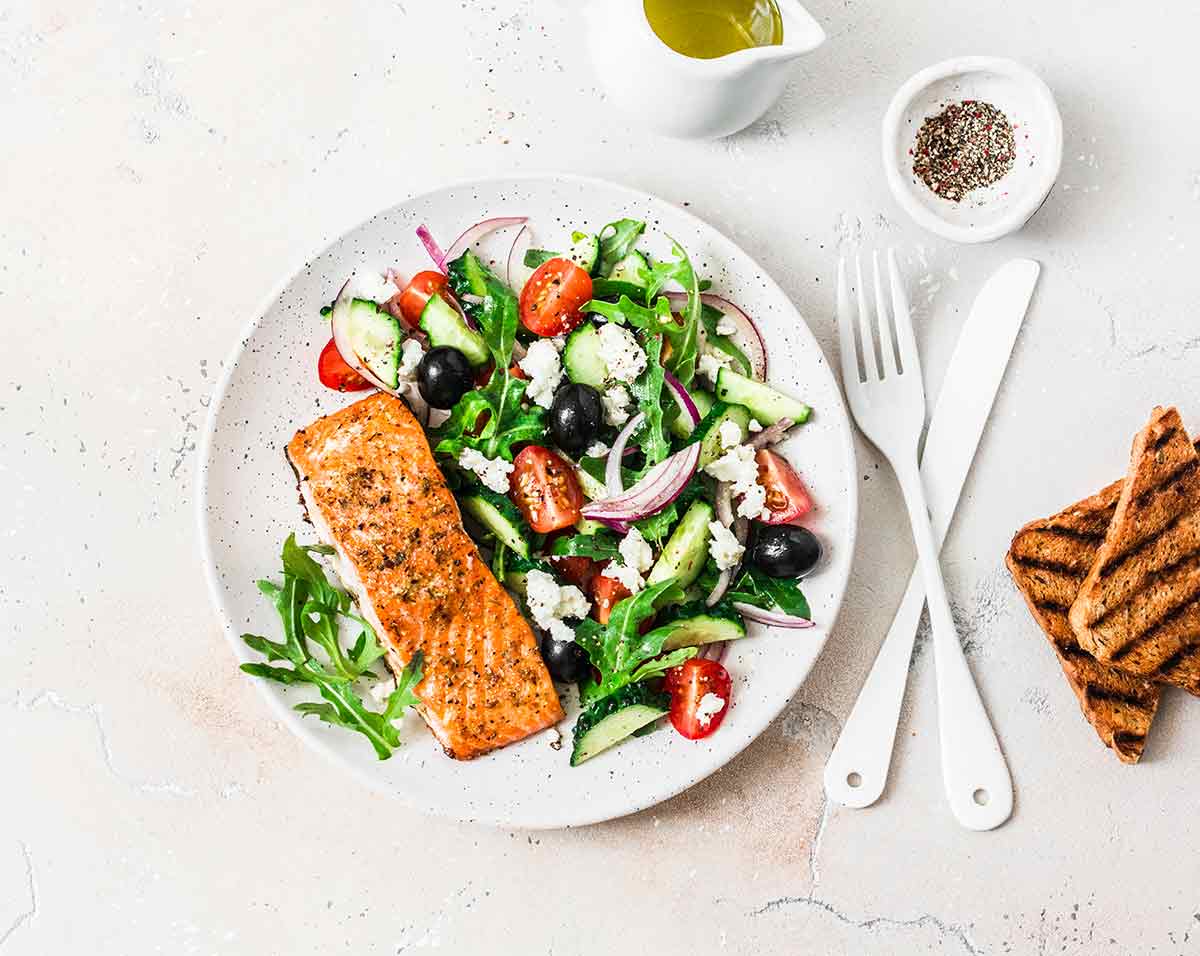Mediterranean Diet - A Heart Healthy and Delicious Style of Eating
August 10, 2020Categories: Wellness
 Fad diets quickly come and go, but there's good reason why the Mediterranean Diet has continued to be a popular and effective way of eating for decades. In fact, the Mediterranean Diet consistently comes out on top in the U.S. News and World Report's annual ranking of best diets.
Fad diets quickly come and go, but there's good reason why the Mediterranean Diet has continued to be a popular and effective way of eating for decades. In fact, the Mediterranean Diet consistently comes out on top in the U.S. News and World Report's annual ranking of best diets.
Interest in this style of eating began in the 1960s when it was found that people in Mediterranean countries experienced fewer deaths related to heart disease. Many studies since then have repeatedly confirmed the foundation of a Mediterranean-style diet lowers risk of cardiovascular diseases and other conditions such as cancer, Alzheimer's disease and Parkinson's disease.
So, just what is the foundation of this diet which is so strongly linked to heart healthy benefits?
The Foundation of the Mediterranean Diet
"I like to think of the Mediterranean Diet as a lifestyle or way of eating rather than a diet," says Mary Hampton, RD, LD, dietitian at MercyOne Dubuque Medical Center. "The word 'diet' makes me think of restricting foods, but the Mediterranean Diet is really inclusive of all foods."
Mary explains there are no strict rules for the Mediterranean Diet, but rather a foundation to work from, and that's what makes it successful as a long-term way of eating.
Here are some guidelines to get you started:
- Fruits and Vegetables: Try for 7 – 10 servings of fruits and vegetables. Berries, apples and non-starchy vegetables are excellent choices. Try filling a large portion of your plate with vegetables, and enjoy fruit for dessert. Remember that portion sizes for fruits and vegetables are small: A large piece of fruit counts as two servings, and a half cup of cooked vegetables is one serving.
- Whole Grains: "This is often a category that's eliminated in fad diets, but we know carbohydrates in healthy forms are good for us and have a lot of nutrition," says Mary. "Whole grains typically have a lot of fiber, which helps lower bad cholesterol." Mary suggests 4 – 6 servings a day of whole grains, such as whole grain breads, whole grain cereals, brown rice, oatmeal, quinoa, barley, buckwheat, or popcorn.
- Healthy Fats: Healthy fats help raise our good cholesterol and lower our bad cholesterol. Olive oil is a great example. Try swapping your butter for extra virgin olive oil whenever possible. In contrast, unhealthy fats will raise bad cholesterol. Limit unhealthy fats as much as possible, including saturated fat found in animal fat and trans-fat that is found in restaurant-fried foods.
- Fish and Seafood: "Omega-3 fat sources, such as salmon and tuna, may lower the risk of heart attack and stroke by preventing clots that form in the blood and could contribute to heart attack and stroke. Omega 3 fats may also reduce inflammation in the body. Try for two servings of fish a week.
- Low-fat or Nonfat Dairy: Dairy plays an important part in the Mediterranean Diet, as dairy is a good source of potassium, magnesium, protein and calcium. Mary suggests two servings a day of low-fat or nonfat dairy.
Because there are no strict rules, it's easy to get started. Mary recommends picking one area to focus on first, such as adding more fruits and vegetables or switching to whole grains.
"Start by making small changes in your diet, because small changes lead to big, healthy outcomes," she says.
Healthy Variety Meals
For those who live in the Clinton, Dubuque and Siouxland areas, MercyOne offers a frozen meal option called Healthy Variety, with many options that incorporate the foundation of a Mediterranean Diet. The meals are heart healthy, low in sodium, diabetic friendly—and delicious. They offer an easy meal solution for anyone with congestive heart failure, diabetes, heart disease or those following a weight reduction diet.
Let’s build you an unbeatable care circle.
- More than 20,000 providers and supporters
- The region’s highest-rated specialty services
- More locations and more personalized care
